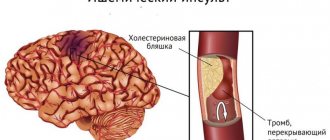Updated: 05/11/2021 11:05:27
Expert: Tatyana Sergeevna Stepicheva
“Life is hectic, there are so many things to do, one is more important than the other, there is no time to sleep and eat” - this is how one can describe the life of an average resident of a metropolis. Constant employment and lack of rest, disruption of biological rhythms, stress - all these are companions of modern life. The downside of this rhythm of life is overwork.
And this is not just a state of “no strength”, overwork is a medical diagnosis, which in the International Classification of Diseases is called an overworked state (Z73.0). It must be distinguished from simple fatigue or fatigue. When tired, a person feels a decrease in performance and a deterioration in well-being. But these symptoms disappear after proper sleep or rest. In the case of overwork, everything is much more serious.
Overfatigue is a stage of long-term, chronic fatigue
If the state of exhaustion and fatigue is ignored for a long time, then it can go into the stage of overwork. The body does not rest even at night, all resources are so depleted that it can no longer resist external influences, all systems begin to fail - cardiovascular, immune, gastrointestinal, etc. First of all, overwork can provoke diseases of the nervous system.
Causes of overwork
The main reason for overwork is obvious - there is a lot of work, and there is little quality, proper rest.
Fatigue can be caused by:
- poor working conditions;
- unfavorable living conditions;
- malnutrition;
- heavy physical activity.
So, if you work 10-12 hours a day, eat on the go whenever you have to and whatever you have, and after work you go to the gym without training, then you are at risk.
The situation will be aggravated by frequent stress that accompanies both at home and at work, poor quality and insufficient duration of sleep, lack of minimal physical activity during regular mental work; long monotonous and monotonous work.
Signs of overwork
Symptoms
, which are worth paying attention to in order to recognize overwork in time and take action.
- You feel extremely tired, even if you have rested for 5 to 7 hours before.
- You often suffer from colds and respiratory diseases.
- You suffer from headaches and/or stomach pain.
- You suffer from insomnia.
- We noticed that memory became worse, it was more difficult to concentrate and switch.
- They began to lash out at loved ones and were constantly irritated.
- Lost appetite or, on the contrary, constantly want to chew something.
- You have become worse at work, solving production problems is becoming increasingly difficult, and in general you notice that you are slow.
- Redness of the eyes.
- 10. Apathy and indifference.
These signs are characteristic of both physical and mental fatigue.
The first arises as a result of hard work associated with constant tension of certain muscle groups. The difference with physical fatigue is that it is easier to cope with. It is enough for a person to get enough sleep, relax his muscles, for example, with a massage or a bath with warm water.
Mental fatigue is much more common. With mental fatigue, brain cells are depleted from constant excessive workload. The danger of mental fatigue is that it can go unnoticed for a long time, it increases gradually, physical manifestations begin when the process has already gone far. Therefore, mental fatigue is more difficult to treat.
There are 3 stages of mental fatigue
- First - beginning
. The person feels quite energetic and efficient. All that worries him is poor sleep (he falls asleep worse, wakes up often), because of which he feels unrested in the morning, and decreased appetite.
- Second - easy
. Drowsiness worsens, it is joined by lethargy and apathy, painful sensations appear (head, heart, stomach). Work duties are becoming increasingly difficult to perform: it is difficult to concentrate, work is slower than usual.
- The third is expressed.
In addition to the constant feeling of fatigue and low performance, more and more physical symptoms appear from various organs. Body temperature may rise and weight may decrease. Women report menstrual irregularities. The person takes on a sickly appearance: sunken eyes, pale skin, bruises under the eyes, etc.
There is also a fourth stage of overwork. The Japanese came up with a special term for it - “karoshi” or “karoshi”. This term can be translated as “death at work from overwork.” Excessive workloads are increasingly leading to death. In Japan, this phenomenon is taking on depressing proportions. In 2015, more than two thousand such cases were recorded (according to the Japanese Ministry of Labor). The Japanese, seriously concerned about this problem, conducted a study and found that 80 additional hours per month (in addition to eight hours of daily working time) spent at the workplace can lead to karoshi.
Russia does not yet maintain similar statistics. No one can say how many people get sick and die from overwork. But the general trend is that more and more people are seeking medical help due to diseases acquired due to overwork.
Types of overwork and its symptoms
“Fatigue can be both physical and mental. However, the ways to deal with them are different. If you are physically overtired, it is enough to just have a good rest, for example, sleep. But with the mental one, it’s more complicated, because it often develops unnoticed,” says the immunologist.
The specialist also emphasizes that it is worth taking a close look and listening to yourself and your loved ones in order to identify symptoms of mental fatigue. These include:
- irritability and nervousness;
- headaches, which are otherwise called tension pains;
- absence or, conversely, increased appetite;
- disturbance and lack of sleep;
- fatigue and apathy;
- decreased concentration, slowness.
All this leads to decreased performance. “If you have identified such signs in yourself, you need to start correcting them without pushing yourself to the extreme,” emphasizes Evgenia Parshina.
Article on the topic
How to relieve fatigue and recover. 6 rules for holidays without vacation
Who is susceptible to overwork
Most often, employees in responsible positions suffer from chronic overwork; those who do not have the opportunity to take a full vacation, often work on weekends and go on business trips. Work associated with constant communication with people and conflict situations is fraught with overwork.
If thoughts about work do not leave you outside the office, you scroll through work issues in your head in the evening, on weekends, on vacation - this is the first signal that in order to maintain mental and physical health, something needs to be changed in life.
How different types of overwork manifest themselves
Different types of overwork have their own characteristic symptoms, from which it is easy to understand the nature of the disease. It is extremely important to pay attention to them and not confuse them with ordinary fatigue.
Physical
Signs of physical fatigue:
- A persistent feeling of fatigue that cannot be relieved with the usual types of rest.
- Muscle pain.
- Sleep disorders (restless, interrupted sleep, nightmares, insomnia).
- Weakness, lethargy of muscles.
- Slowing reactions.
There can be many reasons for physical fatigue. Among them:
- Prolonged physical work without rest and the opportunity to relax or redistribute the load (for example, irrationally planned training for athletes).
- Monotonous physical work, even if it is not difficult, can lead to overwork.
- One-time, but very strong physical activity is also very risky.
Constant tension in the muscles leads to stagnation of blood in them and “hardening” of muscle tissue. Muscle spasms and “tightness” are also common, leading to severe pain. In addition, with excessive loads, microtraumas are caused to the muscle fibers - they “tear”.
With proper alternation of loads and rest, the fibers have time to recover, “healing” the breaks with the help of protein, but if you do not give the muscles rest for a long time, they will not have the opportunity to regenerate.
Emotional
Emotional exhaustion is no less destructive than physical exhaustion. The reason for this is excessive stress, which leads to persistent emotional burnout. It must be said that burnout in such a situation is a kind of defense mechanism.
The fact is that any emotion is a set of biochemical reactions: various hormones are involved in the experience of emotion, as well as many nerve pathways and endings.
Remember adrenaline, which mobilizes all body systems, serotonin and many other hormones that are produced in various situations and, in essence, shape our emotions.
Now imagine that under the influence of the same type of unpleasant situations, the same set of hormones is produced in the body, and the same type of signals are transmitted along the nerve pathways. By the way, this set of hormones often includes adrenaline - it should help cope with stress.
But in reality, a kind of poisoning of the body with hormones occurs, and an unbearable load falls on the nervous system. To prevent the nervous system from “burning out,” the body partially “turns off” it. This helps for a while, but the consequences of such “protection” in the long run are even more disastrous.
Emotional fatigue, or exhaustion, manifests itself in the following signs:
- Lethargy, apathy.
- Inhibited reactions.
- Loss of tactile sensitivity.
- Sometimes there is a weakening of taste sensations.
- Flattening and weakening of emotions.
- In cases of severe overwork, some emotions may simply disappear (in fact, they do not disappear anywhere - all biochemical processes continue to occur, but the person does not feel them and does not feel any experiences).
- Irritability, frequent and unpredictable mood swings.
- Desire for solitude (a person spends less time in the company of other people, becomes unsociable, does not tolerate being around someone else).
- Sleep disorders - restless, interrupted sleep, insomnia, nightmares.
Emotional fatigue is a very dangerous phenomenon, which, if not paid attention to, leads to depression. Depression is by no means a “bad mood”, it is a serious disorder of brain function in which the production of many important hormones (for example, serotonin) stops.
This leads to biochemical changes in the brain itself, and often these changes are irreversible. Therefore, it is so important to recognize overwork in a timely manner - its symptoms are often clearly visible, the main thing is not to make the mistake of attributing them to “laziness” or “mood.”
There are a lot of reasons that cause emotional fatigue, but they all boil down to one thing - a person experiences a state of stress for a long time. Stress can be caused by a variety of situations:
- Nervous, stressful work associated with communicating with a large number of people and/or constantly making serious decisions.
- Unfavorable family environment.
- Some kind of severe shock.
Stress can be not only negative, but also positive. An excess of positive emotions can also lead to overwork.
Nervous
Nervous fatigue is similar to both types described above. It is closely related to the physical, and very often these two types of disorders occur simultaneously or one entails the other.
Overstrain of the nervous system is expressed in disruption of the transmission of nerve impulses.
Often, the body, as in the case of emotional exhaustion, partially “turns off” the nervous system.
All this manifests itself in the form of the following symptoms:
- general weakness;
- a constant feeling of drowsiness, an increase in the amount of time required for sleep (instead of the usual eight hours, a person begins to sleep ten to twelve);
- weakening of emotions;
- impaired tactile sensitivity;
- muscle fatigue;
- headache.
Nervous exhaustion can be caused by stress, hard work (especially monotonous work), as well as constant adverse effects on the senses. For example, high noise levels, strong unpleasant odors and similar irritants.
“Overload” of the senses gradually leads to nervous exhaustion, which easily develops into neuroses, tics, and asthenic conditions. An unfavorable emotional background - fear, anxiety, irritation - also provides excellent conditions for the occurrence of nervous fatigue.
Mental
Mental fatigue occurs as a result of intense intellectual stress to the limit of capabilities. Very often it develops “in combination” with nervous fatigue. Overfatigue of this kind can be caused by both excessively high and excessively prolonged intellectual stress.
In addition, its development is facilitated by insufficient oxygen supply to the brain. A stuffy room and lack of physical activity (and, as a result, blood stagnation) spur the development of mental exhaustion.
Mental exhaustion can be recognized by the following signs:
- deterioration of concentration and memory;
- absent-mindedness;
- sleep disturbances, constant feeling of fatigue (while there may be no drowsiness);
- decreased tactile sensitivity;
- appetite disorders.
All types of overwork are characterized by a decrease in the “pace of work” of the body. The body seems to go into energy saving mode.
Prevention of overwork
In order not to “burn out at work,” you must follow a number of rules.
- A reasonable approach to organizing working time. It must provide for a change of activity. Even light, but monotonous work causes overwork faster than with varied work. To create a regime that includes a change in activity, it is better to write out the entire to-do list for the day in advance and distribute them throughout the day.
- Get at least 8 hours of quality sleep. How the night went depends on how rested the brain is and what performance will be the next day.
- Regular and nutritious meals. Fresh fruits and vegetables, herbs, fish, foods rich in vitamins and minerals. The body needs a lot of energy to cope with everyday tasks. Do not deprive him of nourishing food, which serves as a source of this energy.
- Rest during the day. You need to take a break from work not only in the evening, after a working day. Rest should be regular. Let it be 5-10 minutes, but several times throughout the day. Doctors say that this is exactly how much time our nervous system needs, approximately every hour. Working continuously for more than two hours is not only harmful to health, but also ineffective, because... The productivity of a tired brain is greatly reduced.
Keep in mind that viewing posts on social networks will not be considered vacation. During the pause, you need to switch gears and leave your workplace. The best thing to do is go for a walk. During your lunch break you can rest longer - about an hour.
- Weekends and vacations. There is little rest during the working day. At least one day a week you need to completely free yourself from work. Vacations are a must during the year. For health, it is important that it lasts at least 3-4 weeks a year - in a row or in two sessions.
- Adequate physical activity. We are not talking about lifting iron in the gym after a working day, when the body is already exhausted. Hiking, light sports, and yoga are better for health and for preventing fatigue.
- Pleasant leisure time. There must be something in life other than work. If you don’t have an exciting hobby, then just read a book, play board games with friends, or go on a picnic.
Why is this condition dangerous?
Doctors note that the development of such fatigue and the progression of its symptoms can seriously harm health. So, some people escape from overexertion and stress by engaging in bad habits, and this is the cause of alcoholism, etc., relationships with loved ones may collapse due to emotional instability. There are also problems in the digestive system against the background of constant stress and nervous experiences. Then problems with the heart and blood vessels develop, a person begins to experience pressure surges and metabolic disorders.
People with overwork often have characteristic external defects - bruises under the eyes, pale skin, bluish lips, deterioration in the quality of hair and nails, etc.
At the same time, it is worth understanding that overwork is deadly. Thus, in Japan there is already a special term “karoshi”, which means death due to overwork, which usually leads to strokes and heart attacks. This definition was derived after studying a large number of deaths among workers. Then the researchers came to the conclusion that the reason for their premature death was that people overloaded themselves at work and were constantly overtired, worked to exhaustion and did not pay attention to health disorders. Rough calculations have shown that 10 thousand people a year are susceptible to this phenomenon.
Regain vigor and restore health. What will relieve fatigue in the fall? More details
At the first sign of fatigue
If you do notice that you've been feeling more tired lately, sleeping poorly and eating without appetite, it's time to take action.
- Increase the amount of rest during the day and throughout the work week.
- Give up bad habits. Cigarettes and alcohol are an additional blow to the cardiovascular system, which already suffers from overwork.
- Spend at least 20 minutes a day in fresh air. Walk, sit on a park bench, ride a bike.
- Adjust your sleep schedule. Go to bed as early as possible and at the same time (no later than 23:00).
- Drink more water.
- Do massage. You can stretch your muscles yourself or go to a massage therapist.
- Consume more foods rich in calcium and phosphorus.
For more severe, advanced cases of fatigue, it is better to consult a doctor.
How to relax
After concentrating for several hours and feeling mentally tired, be sure to allow yourself to relax. Coffee or alcohol are not the best helpers here. Instead, you should find a quiet place, close your eyes, and breathe calmly. The best position for relaxation, oddly enough, is not lying on the sofa or sitting in a chair. Doctors believe that it is best to rest while sitting on the floor with your legs tucked under you “Turkish style.” In this position, the body relaxes, tension (both nervous and muscle) goes away.
It will be useful to imagine a pleasant picture for you - a forest, a river or seashore. 10-15 minutes of such rest will restore peace of mind and restore strength.
Use this method or any others to combat fatigue and be gentle with yourself.











